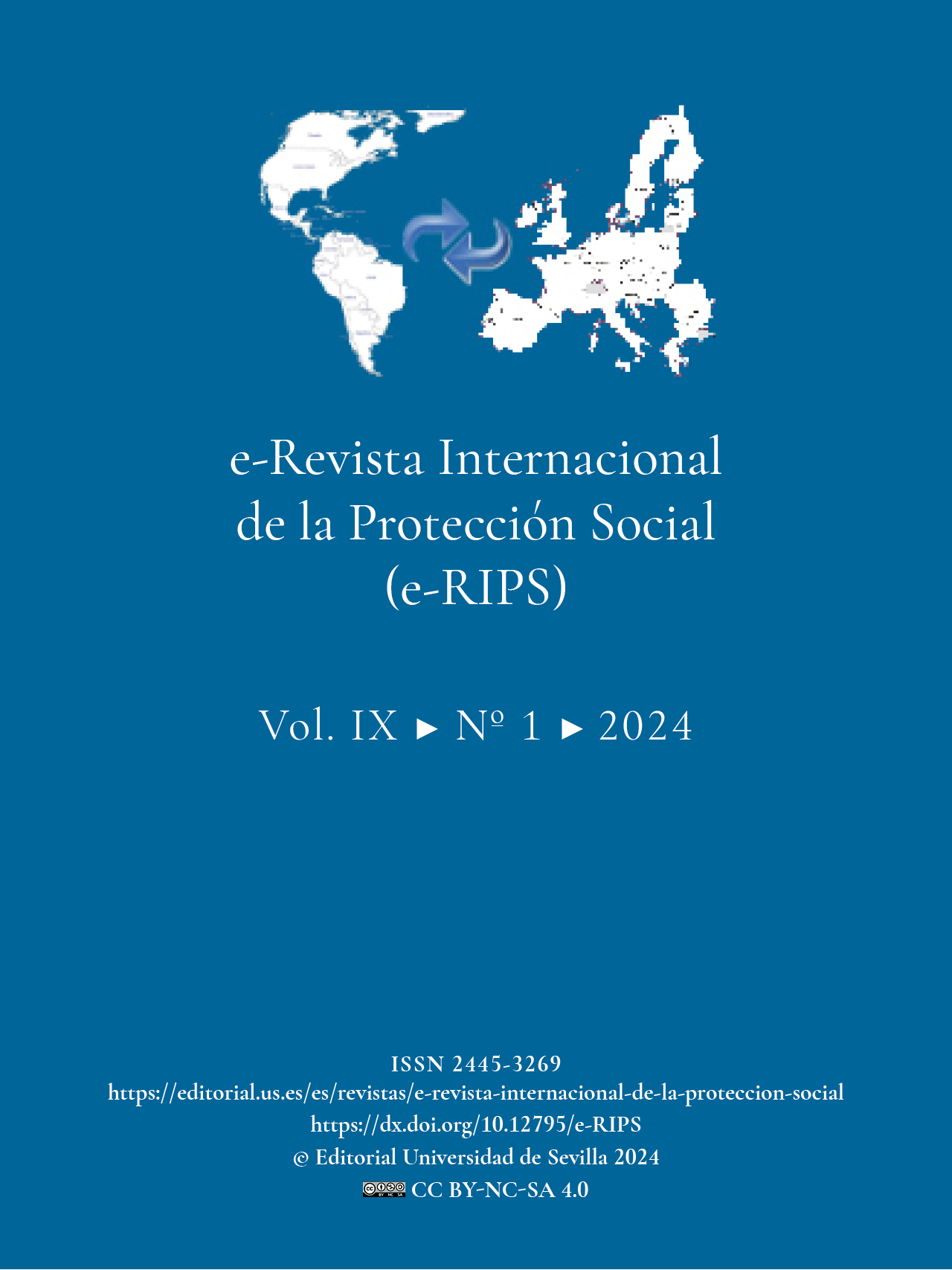Legal status of teleworking. Commentary on the Judgment of the Supreme Court, Social Chamber, of 19 September 2023 (rec. 260/2021)
DOI:
https://doi.org/10.12795/e-RIPS.2024.i01.07Keywords:
Teleworking, Parity with face-to-face work, Collective regulation, Reversibility, IncidentsAbstract
Motivated by emergency legislation, in particular Royal Decree-law 8/2020 on extraordinary urgent measures to deal with the economic and social impact of ‘Covid-19’ and Royal Decree-law 28/2020 on teleworking, the judgement in question carries out an interesting study based on its central conflict, which consists of a different treatment by the company of its workers with regard to the calculation of time without productive activity, due to disconnections that prevent the provision of services, which is an incident attributable to the supplying company. The same contentious issue arises with regard
to the calculation of time to attend to the physiological needs of the workers, which can be excluded from the rest of the rest breaks and can be calculated independently. The claimant trade union filed a collective dispute claim against the company, claiming as ‘working time’ the duly accredited supply interruption, as well as autonomous breaks and effective working time that can be taken into account in cases of physiological needs.
Downloads
References
De la Villa Gil, L. E.: El trabajo a domicilio, Aranzadi, Pamplona, 1966.
Rodríguez-Piñero Royo, M. y Todolí Signes, A. (dirs.): Trabajo a distancia y teletrabajo: análisis del marco normativo vigente, Aranzadi, Pamplona, 2021.
Sala Franco, T.; Todolí Signes, A. y Martín-Pozuelo López, Á. (coords.): El teletrabajo, Tirant lo Blanch, Valencia, 2020.
Taléns Visconti, E. E.: “La jornada laboral en el trabajo a distancia”, en López Balaguer, M. (dir.): El trabajo a distancia en el Real Decreto-ley 28/2020, Tirant lo Blanch, Valencia, 2021.
Trillo Párraga, F. J.: Derecho del trabajo digital: trabajo a distancia y teletrabajo, Bomarzo, Albacete, 2023.
Published
How to Cite
Issue
Section
License
Copyright (c) 2024 Francisco Carmona Pozas

This work is licensed under a Creative Commons Attribution-NonCommercial-ShareAlike 4.0 International License.
Authors being published in this journal agree to the following terms:
- Authors retain their copyright and they will guarantee to the journal the right of first publication of their work, which will be simultaneously subject to license recognition by Attribution-NonCommercial-ShareAlike (CC BY-NC-SA 4.0 DEED)
that allows others to share such work provided that the author’s name and his first publication in the e-International Review on Social Protection is stated. - Authors may take other non-exclusive distribution license agreements version of the published work (e.g. deposit in an institutional digital file or publication in a monographic volume) provided that the initial publication in this journal is stated.
- Authors are allowed and encouraged to disseminate their work via the Internet (e.g. in institutional digital files or on their website) prior to and during the submission process, which can lead to interesting exchanges and to increase citation of the published work.











